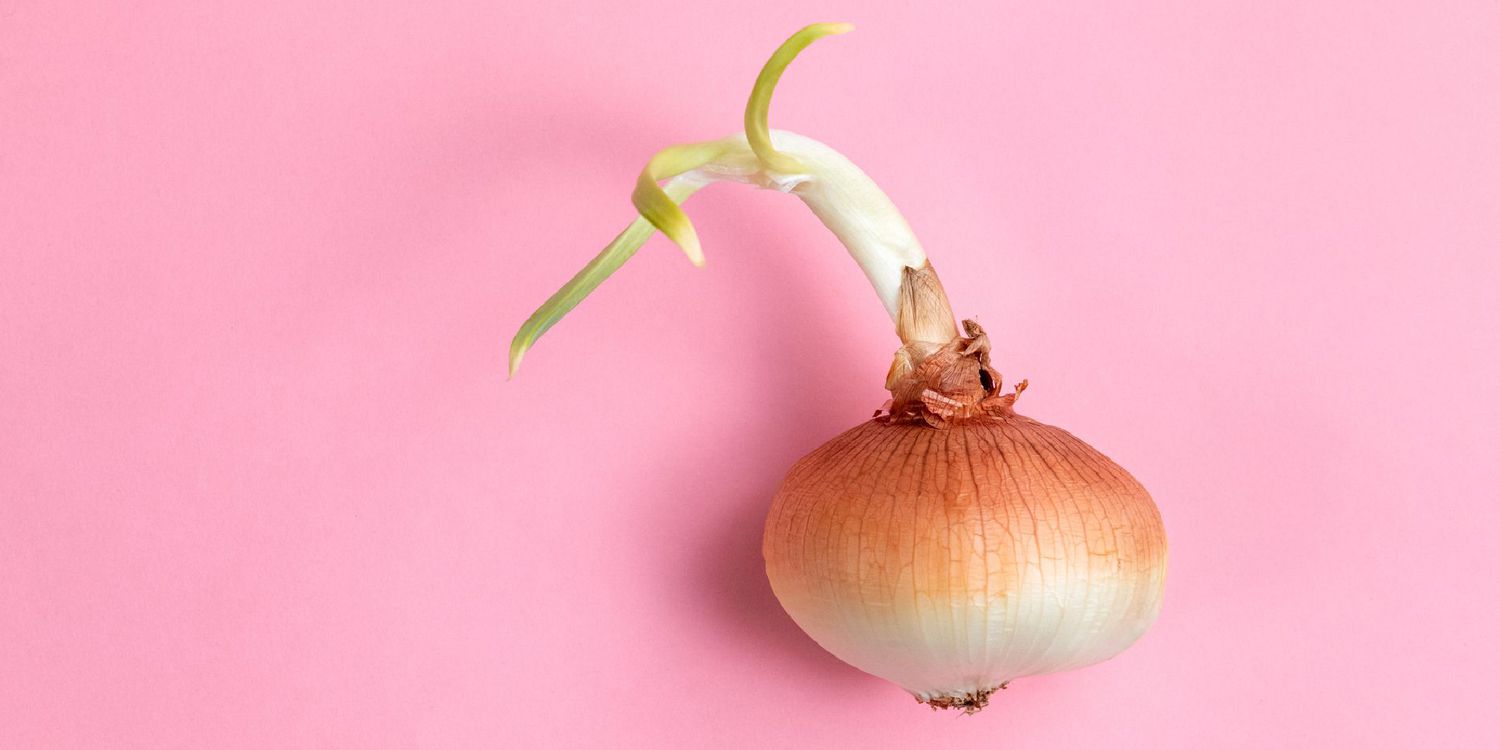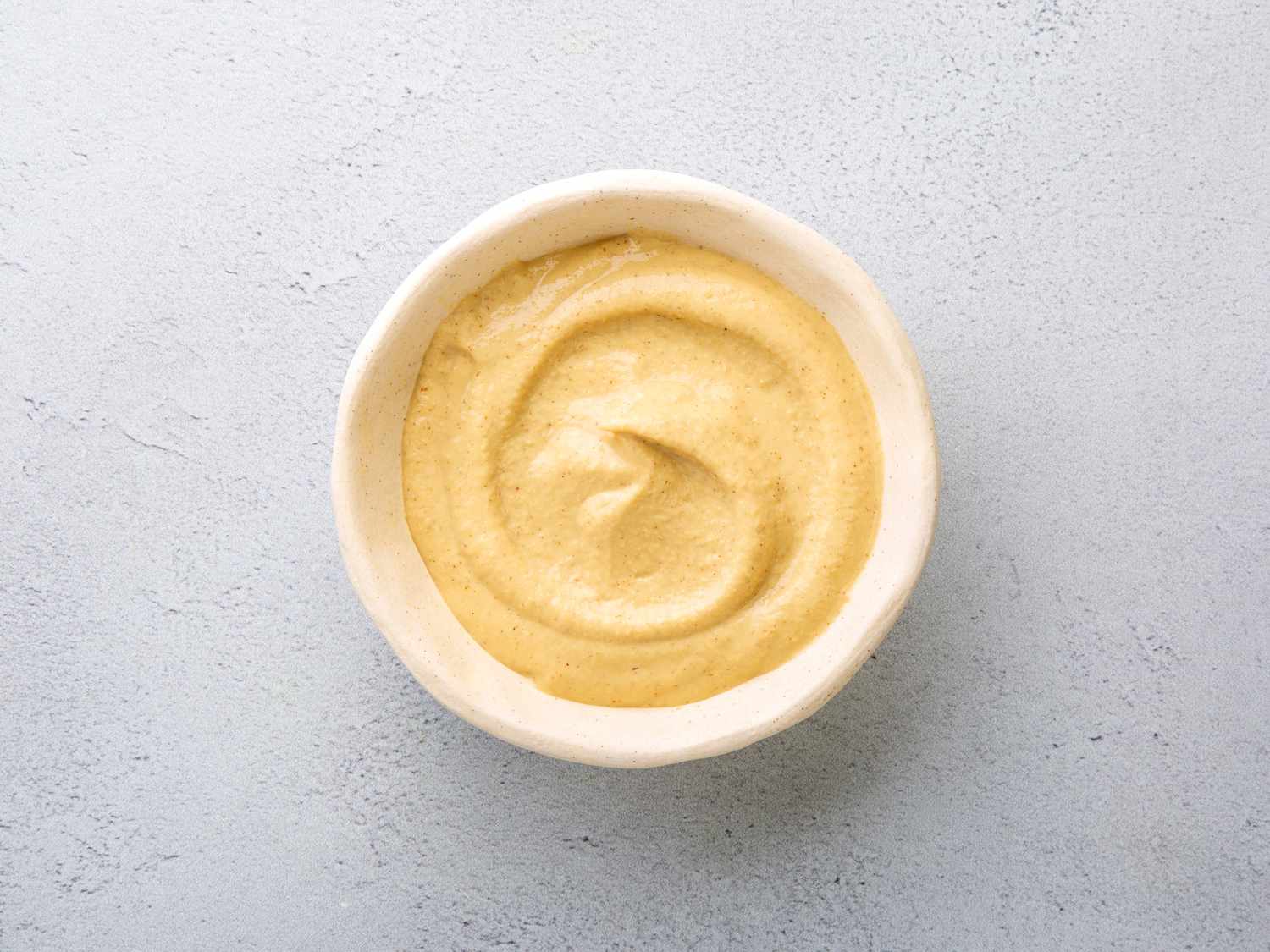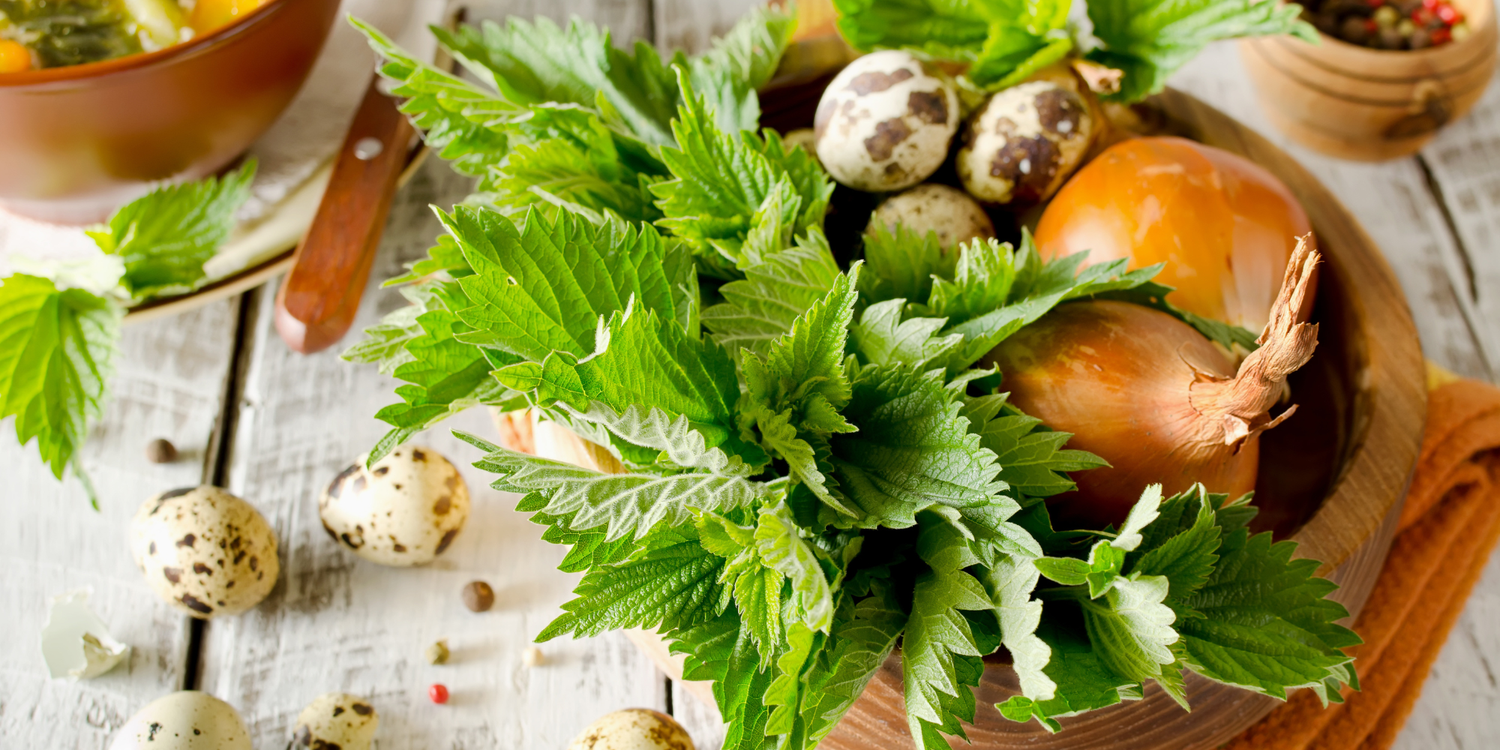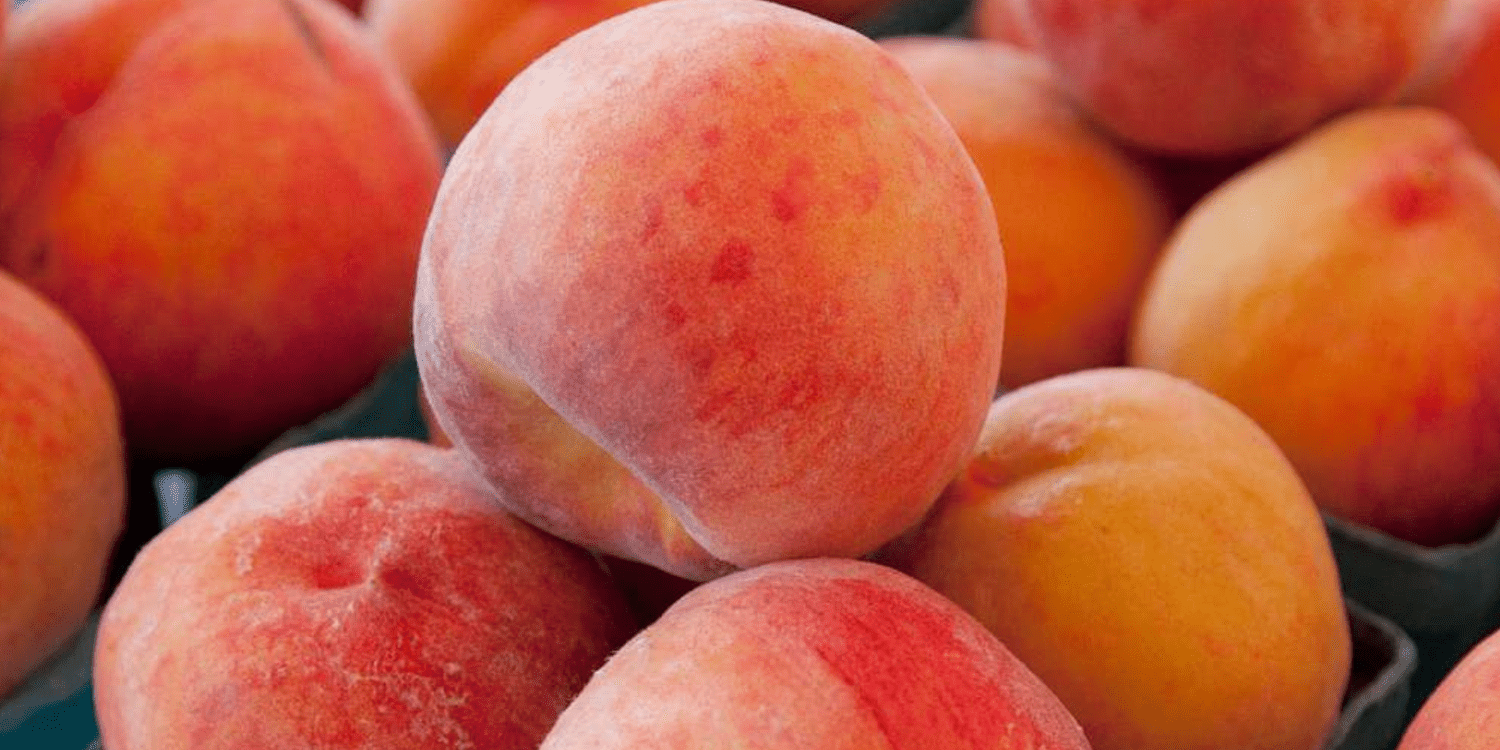A sack of onions in the pantry is a beautiful (and useful) thing. With so many recipes requiring their use, popping in to grab onions whenever you need is convenient, if not necessary. However, keeping a bunch on hand at all times means the inevitable discovery of a shoot breaking triumphantly out of a bulb or two.
When this happens, don’t stand in the pantry doorway contemplating the science experiment occurring within the layers or think about tossing your onions out. Here’s everything you need to know:
Why Do Onions Sprout?
We may think an onion’s primary purpose is to add a baseline of savory flavor to dishes, but to the onion, its purpose is to grow new plants. It’s all about survival, after all.
When onions begin the process of renewal, they direct their sugars and other goodness into the shoot that quite literally shoots up the center. This causes the onion to lose a bit of moisture and sweetness, which might mean some additional bitter notes, but nothing noticeable when cooked.
Can You Eat Sprouted Onions?
You sure can. A bright green tentacle through the center might look like something out of a sci-fi movie, but there isn’t anything dangerous or poisonous about it. The onion will be a bit softer and likely a bit more bitter, but reserving sprouted bulbs for cooked dishes is a simple fix. In fact, chopping up the sprouts to use in place of green onion is a resourceful trick that makes use of the onion’s effort.
What to Do With Sprouted Onions
Most importantly, you want to use a sprouted onion as soon as possible. The longer it’s left to focus on its survival, the mushier your onion will get. Save sprouted onions for dishes where the allium is cooked, masking any textural changes.
Chop the green shoot for a lovely garnish (like on baked potatoes or chili) or remove it by cutting it off, chopping the onion in half, and removing any remaining bits of shoot.
How to Store Onions Properly
The archenemy of onions is moisture – for us, anyway. Moisture jumpstarts the sprouting process, making the fridge an unhelpful place for storage. Sunlight also starts sprouting so opt for a cool, dark, and dry space instead, like a pantry or cellar.
It’s also best to keep onions separate from potatoes; the ethylene gas omitted by onions will ripen those spuds.
Finally, though a sprout isn’t anything to be sad about, letting it go too far will allow the onion to rot. Signs the onion has gone overboard include an overly squishy texture and a musty smell. Place those spoiled bulbs right in the compost pile.
If you find yourself worrying you won’t make it to your stash in time, freezing onions is quick and easy. Just chop the onions, place in zip-top bags, and push as much air out as possible while spreading them in a thin layer within the bag. Place them in the freezer and enjoy for up to eight months.
Related:
- How to Cut an Onion
- Ways to Take the Sharp Bite Out of Raw Onion
- 10 Vidalia Onion Recipes That Everyone Will Love




